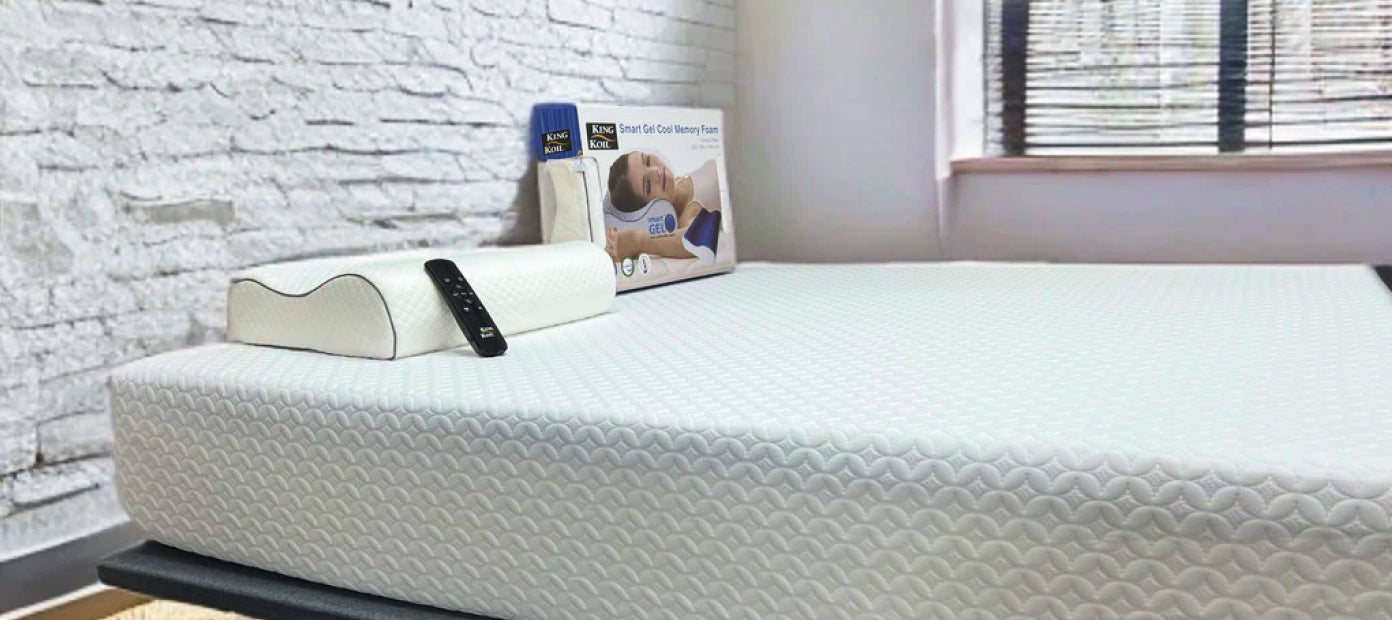A good mattress is essential for getting restful and rejuvenating sleep. However, with so many different types, brands, and models on the market, buying a mattress can be a confusing and overwhelming experience. To make matters worse, there are many myths and misconceptions surrounding mattress buying that can lead to poor purchasing decisions. In this blog, we debunk 13 of the most common mattress-buying myths to help you make an informed and confident purchase.
Myth 1: The firmer the mattress, the better
Fact: The ideal level of firmness for a mattress depends on your individual preferences and sleep needs. A mattress that is too firm can put pressure on your joints and cause discomfort, while a mattress that is too soft can cause your spine to sink and lead to back pain.

Myth 2: Mattresses need to be flipped regularly
Fact: Most modern mattresses are designed to be one-sided, meaning they do not require flipping. However, rotating your mattress every 3-6 months can help prevent uneven wear and prolong its lifespan.
Myth 3: More coils or springs mean a better mattress
Fact: The number of coils or springs in a mattress does not necessarily indicate its quality or comfort level. The overall design, materials, and construction are more important factors to consider.
Myth 4: Memory foam mattresses are always hot
Fact: While some memory foam mattresses can retain heat and feel too warm, many newer models incorporate cooling materials and technologies to promote temperature regulation and a comfortable sleep environment.
Myth 5: A higher price means a better mattress
Fact: Price is not always an indicator of quality or comfort when it comes to mattresses. It's important to compare different models and brands and choose one that fits your individual needs and budget.
Myth 6: You should replace your mattress every 8 years
Fact: The lifespan of a mattress varies depending on its quality, usage, and maintenance. Some mattresses may need to be replaced after just a few years, while others can last for up to 15 years or more.

Myth 7: All Foam mattresses are the same
Fact: There are many different types of foam mattresses, including memory foam, latex foam, and polyfoam, each with its own unique properties and benefits.
Myth 8: The mattress size doesn't matter
Fact: The size of your mattress is an important factor to consider, as it affects both comfort and practicality. Make sure to choose a size that accommodates your sleeping preferences and the size of your bedroom.
Myth 9: All mattresses are the same, so it doesn't matter which one you choose
Fact: Mattresses come in a variety of materials, firmness levels, and features, which can significantly impact your sleep quality and overall health. It's important to choose a mattress that meets your individual needs and preferences, such as the level of support you require, any specific health conditions you may have, and your sleeping position.
Myth 10: You can't try a mattress before buying it online
Fact: Many online mattress retailers offer generous trial periods and free returns to allow customers to test out their products before making a commitment.
Myth 11: A pillow-top mattress is always more comfortable
Fact: While pillow-top mattresses can offer a plush and luxurious feel, they may not be the best choice for those who prefer a firmer sleep surface.
Myth 12: All mattresses are not eco-friendly
Fact: Many mattress companies are now producing eco-friendly options that use sustainable materials, such as organic cotton, wool, and natural latex, and are free of harmful chemicals. These eco-friendly mattresses can be a great choice for those who are environmentally conscious and want to reduce their carbon footprint.
Myth 13: A mattress can cure all sleep problems
Fact: While a good mattress is essential for getting restful and rejuvenating sleep, it cannot cure all sleep problems or conditions. It's important to consult with a healthcare professional if you are experiencing. Because not just a mattress, but also a pillow and bed also matter and play an important part in your health.
In conclusion, buying a mattress is a significant investment, and it's important to make an informed decision based on your individual sleep needs and preferences. By debunking these common mattress-buying myths, we hope to empower you to choose a mattress that will provide you with the comfort, support, and quality sleep you deserve.
Remember, a good night's sleep is essential for overall health and well-being, and choosing the right mattress is a crucial step towards achieving that. So take the time to do your research, test out different models, and make a decision that you can feel confident and satisfied with. Sweet dreams!






Leave a Comment
Your email address will not be published. Required fields are marked * Comments must be approved before they are published.